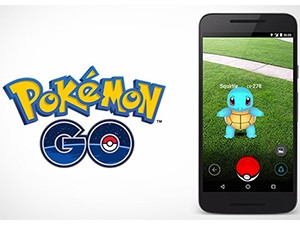
Mobile gamers all over the world are flocking to Pokémon Go, a GPS-enabled augmented reality mobile game released in selected countries last week, without a second glance at the game's accompanying security concerns.
The game aims to immerse players in the world of the Pokémon media franchise, most known for the 1990s Nintendo Game Boy games and children's anime television series, by allowing players to find and catch Pokémon (short for "pocket monsters") in their real-world surroundings.
The game has rocketed to the top of iOS App Stores in each of the countries in which it has been released - so far, the US, New Zealand and Australia - within days of making its first appearance in the countries' iOS and Android app stores.
Shares in Nintendo, the Japanese game company that developed the game in partnership with software development company Niantic, have been boosted by the game's release, up 24.5% on Monday. The BBC reports the share swell after Pokémon Go's release has added over $7 billion to Nintendo's market value to date.
Many users refuse to wait for the game to launch in their home country before playing, instead finding workarounds for its geographical restriction - for example unofficial app stores - some of which present security risks.
For example, some security researchers have found a malicious version of the Pokémon Go app for Android, which installs back doors for hackers on Android phones.
In another case, more traditional criminals preyed on users of the legitimate app in one of the supported regions. Police in Missouri, US report that a group of armed robbers used Pokémon Go to locate unsuspecting users and lure them into secluded areas in order to rob them, with the knowledge that the users at least had a smartphone.
Yet the app is also praised for incentivising simple exercise, as it encourages users to walk around to find new Pokémon to catch.
Share